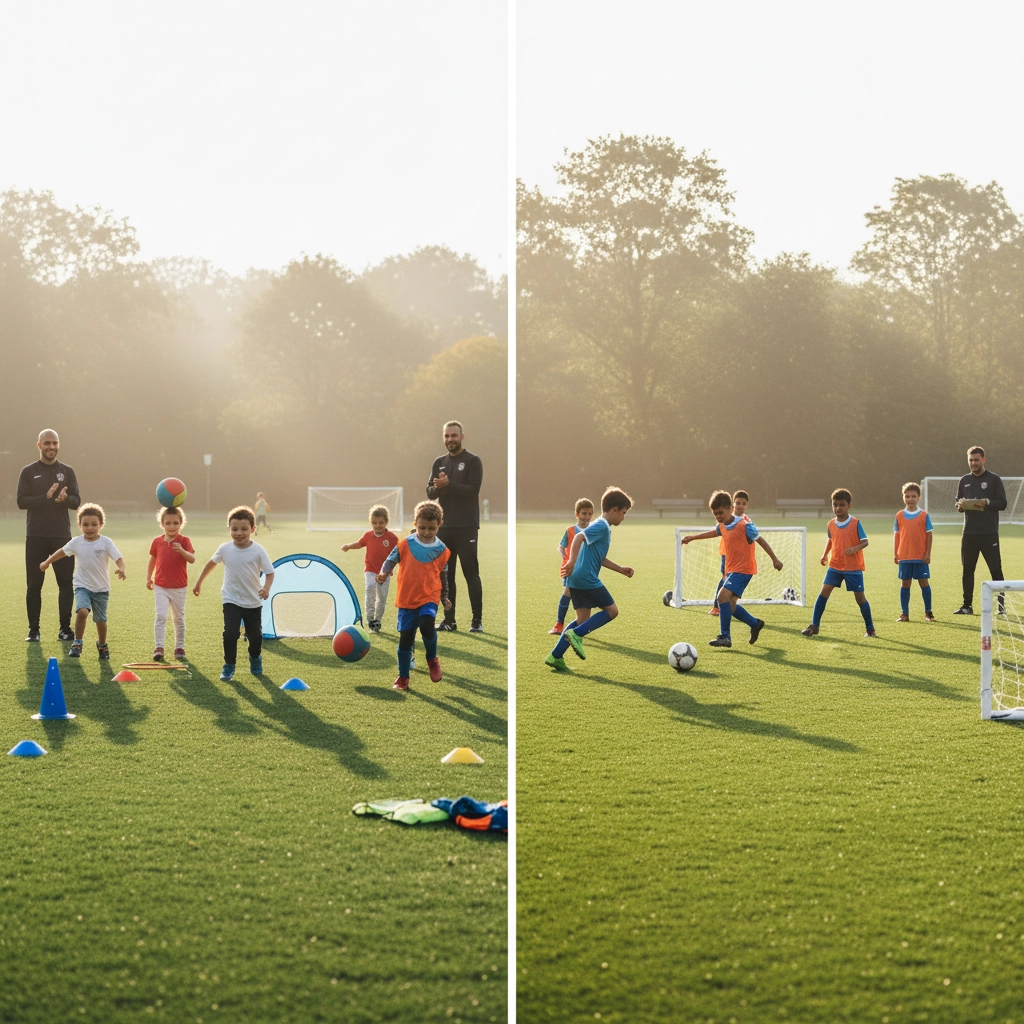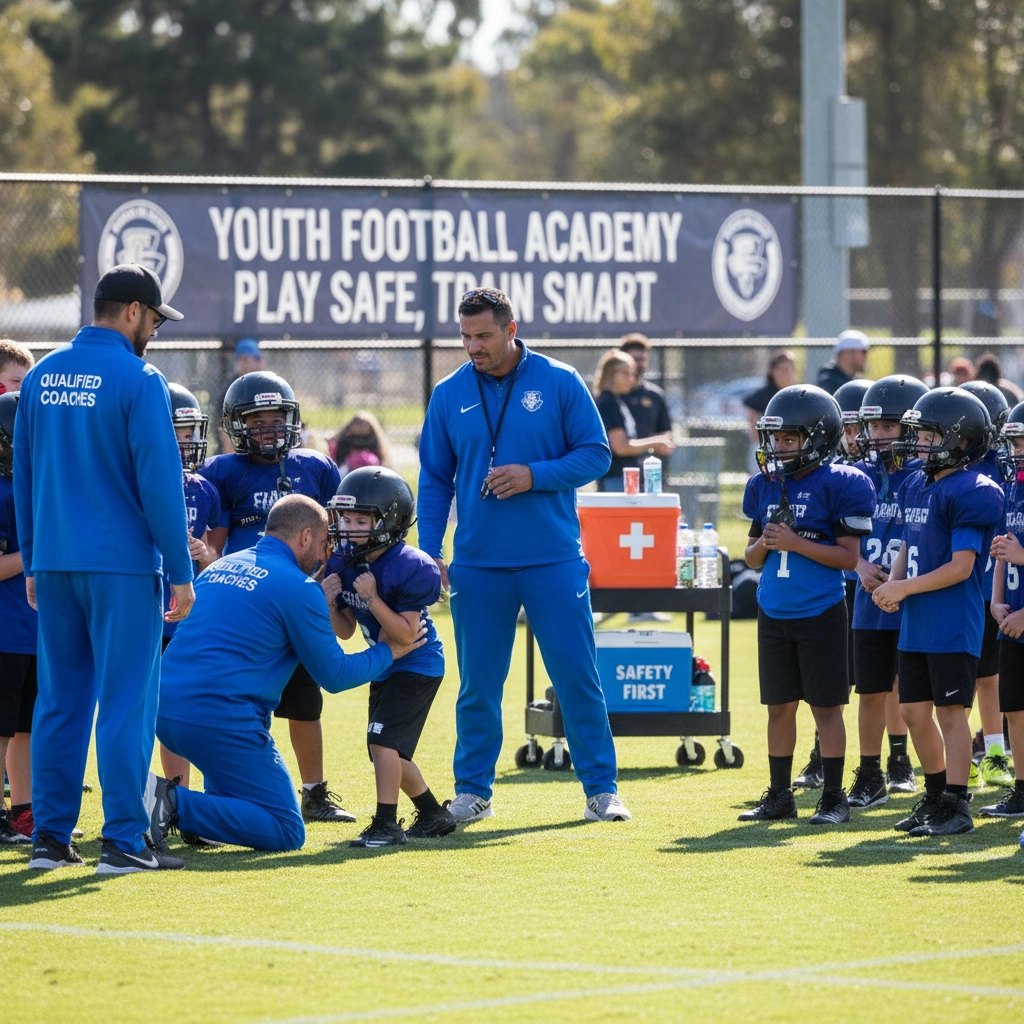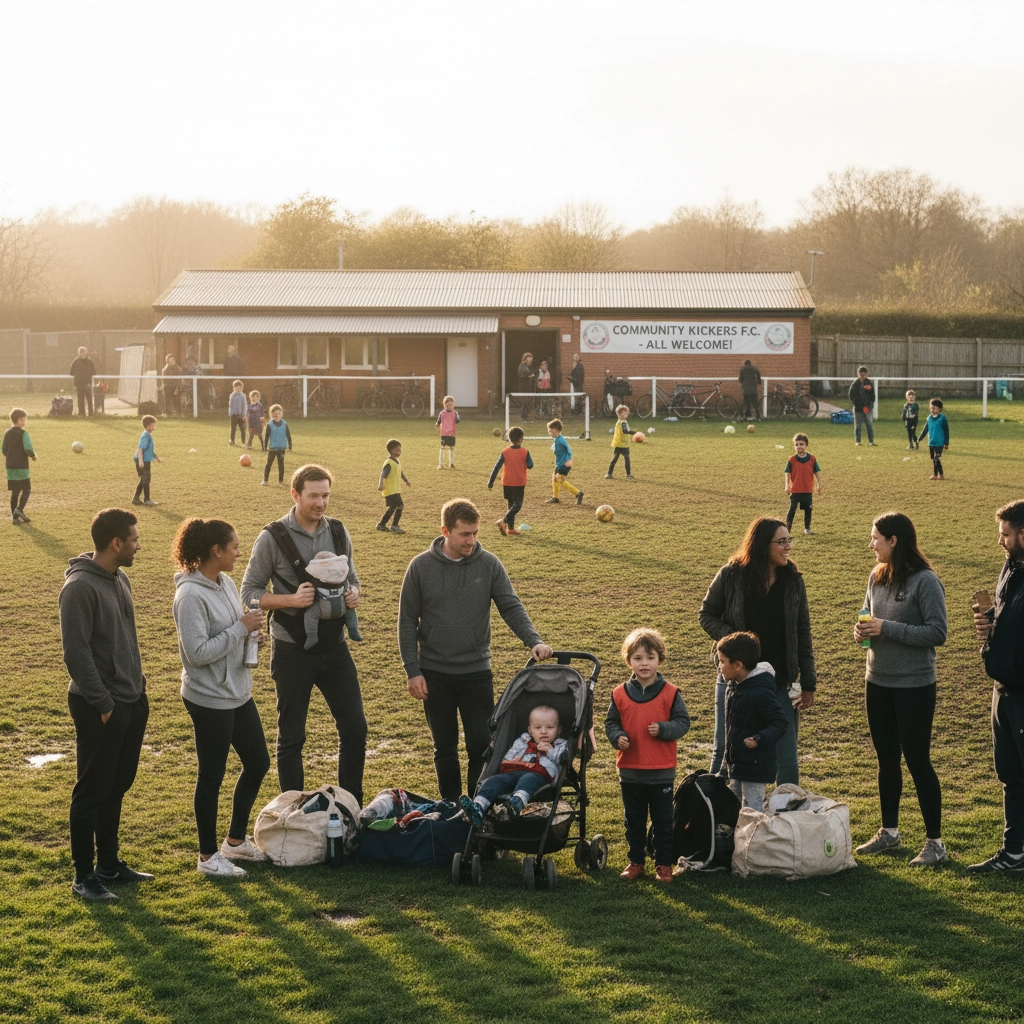5 Steps How to Get Your Child Into Grassroots Football in Edinburgh (Easy Guide for Parents)
- info1791994
- Oct 25, 2025
- 5 min read
Getting your child started in grassroots football doesn't have to feel overwhelming. As a parent in Edinburgh, you're actually in one of the best places in Scotland to find welcoming, community-focused clubs that truly care about every player's development – regardless of their starting ability.
Whether your little one is just discovering their love for kicking a ball around or they're already showing serious promise, grassroots football offers something magical that goes far beyond the pitch. It's about belonging, friendship, confidence, and being part of something bigger than yourself.
Let's walk through exactly how to get your child involved, step by step.
Step 1: Start Your Search Locally (It's Closer Than You Think)
The beauty of Edinburgh's football scene is that there's likely a fantastic club right on your doorstep. Rather than looking at the big academies first, start with your local community clubs – these are the heart and soul of grassroots football.
Community clubs like Corstorphine Dynamo FC welcome families from all backgrounds and focus on developing the whole child, not just their football skills. With over 650 players across all age groups, from tiny tots taking their first kicks to teenagers playing competitive matches, there's genuinely a place for everyone.

Many Edinburgh clubs offer multiple entry points throughout the year. Some run weekend sessions, others focus on weekday after-school programs, and many provide holiday camps during school breaks. The key is finding what works for your family's schedule and your child's personality.
Don't worry about your child's current skill level – grassroots football is designed to be inclusive. Whether they're naturally athletic or still figuring out which foot to use, good coaches will meet them where they are and help them grow from there.
Step 2: Take Advantage of Taster Sessions
Most community clubs understand that signing up for football can feel like a big commitment, especially if your child hasn't played organized sport before. That's why many offer taster sessions or trial periods.
These sessions are goldmines for both you and your child. Your little one gets to experience what training feels like, meet potential teammates, and see if they click with the coaching style. Meanwhile, you can observe how the club operates, chat with other parents, and get a feel for the community atmosphere.

At clubs like Corstorphine Dynamo FC, you'll often find that the coaching approach focuses on fun and skill development rather than winning at all costs. Look for coaches who encourage every child, celebrate effort over results, and create an environment where mistakes are seen as learning opportunities.
During these taster sessions, don't be afraid to ask questions. How do they handle different skill levels? What's their approach to team selection? How do they deal with any behavioral issues? The best clubs will be happy to discuss their philosophy openly.
Step 3: Understand the Pathway (But Don't Stress About It)
Grassroots football typically follows a natural progression, but it's important to understand that this isn't a race. Most clubs structure their programs around age groups, starting with fun, skill-based sessions for the youngest players and gradually introducing more tactical elements as children develop.
For younger children (ages 4-7), the focus is usually on basic skills, listening, and having fun with the ball. Sessions might involve games like "traffic lights," simple dribbling exercises, and lots of encouragement. At this stage, there's rarely any competitive element – it's all about falling in love with the sport.
As children move into the 8-12 age bracket, they typically start playing small-sided games (like 7v7 or 9v9) and begin learning positions and basic tactics. This is where you might see the introduction of friendly leagues and tournaments, though the emphasis should still be on development over results.

Many clubs, including those with sections for different age groups like Corstorphine Dynamo's youth teams, structure their programs to ensure every child gets adequate playing time and development opportunities. The best grassroots clubs rotate players through different positions and focus on individual improvement rather than just team success.
Remember, not every child will want to progress to competitive football, and that's perfectly fine. Many players enjoy recreational football throughout their teenage years and beyond, staying involved for the fitness, friendship, and community aspect.
Step 4: Verify Safety Standards (Your Peace of Mind Matters)
Safety should never be an afterthought when choosing a football club for your child. Reputable grassroots clubs take this seriously and will be transparent about their safeguarding procedures.
All coaches working with children should have current DBS (Disclosure and Barring Service) checks. This is non-negotiable. They should also have appropriate coaching qualifications – these don't have to be professional-level, but coaches should have completed at least basic courses through the Scottish FA or similar organizations.
First aid training is equally important. Injuries in grassroots football are generally minor – scraped knees, bumps, and the occasional twisted ankle – but you want to know that someone present can respond appropriately if needed.

Good clubs will also have clear policies around bullying, inclusive behavior, and communication with parents. They should be able to explain how they handle conflicts between children and what steps they take to ensure every player feels welcome and valued.
Don't hesitate to ask about these policies during your initial conversations with clubs. Any organization that seems evasive about safety procedures or treats your questions as unnecessary isn't the right fit for your family.
Step 5: Consider the Practical Stuff (Budget and Logistics)
Let's be honest – as much as we'd love grassroots football to be completely free, there are usually costs involved. The good news is that most community clubs work hard to keep fees reasonable and often have support systems in place for families who might struggle with costs.
Typical expenses might include registration fees, training session costs, kit, boots, and potentially travel expenses for away matches. Some clubs operate on a pay-per-session basis, while others charge termly or annually. Many offer family discounts if you have multiple children participating.
Equipment costs don't have to break the bank. For beginners, basic boots and shin pads are the essentials. Many clubs have kit lending schemes or second-hand equipment available. As your child's interest and commitment grows, you can always invest in better gear later.

Consider the time commitment too. Grassroots football typically involves one training session per week (usually lasting 60-90 minutes) plus matches on weekends during the season. Factor in travel time and the inevitable post-training snack stop, and you're looking at a few hours each week.
Many parents find this time investment pays dividends – not just in their child's physical development and social skills, but in the friendships they form with other families. The sideline conversations and post-match coffee meetings often become genuine friendships that extend well beyond football.
Making the Right Choice for Your Family
Choosing the right grassroots football club isn't about finding the most successful team or the fanciest facilities. It's about finding a community where your child feels valued, supported, and excited to participate.
Trust your instincts when visiting clubs. Does the atmosphere feel welcoming? Are the coaches patient and encouraging? Do the children seem to be enjoying themselves? Are other parents friendly and approachable?
Remember that grassroots football is meant to be fun. If your child comes home from sessions excited to tell you what they learned, if they're asking when the next training is, if they're practicing skills in the garden – those are the signs you've found the right place.
At its best, grassroots football creates memories that last a lifetime, friendships that extend far beyond childhood, and confidence that serves children well in all areas of life. Your child doesn't need to become the next football star to benefit enormously from being part of a good club.
The journey starts with that first session. Why not explore what's available in your local area and see where it leads? You might just discover that grassroots football becomes one of the best decisions you make for your family.
Comments